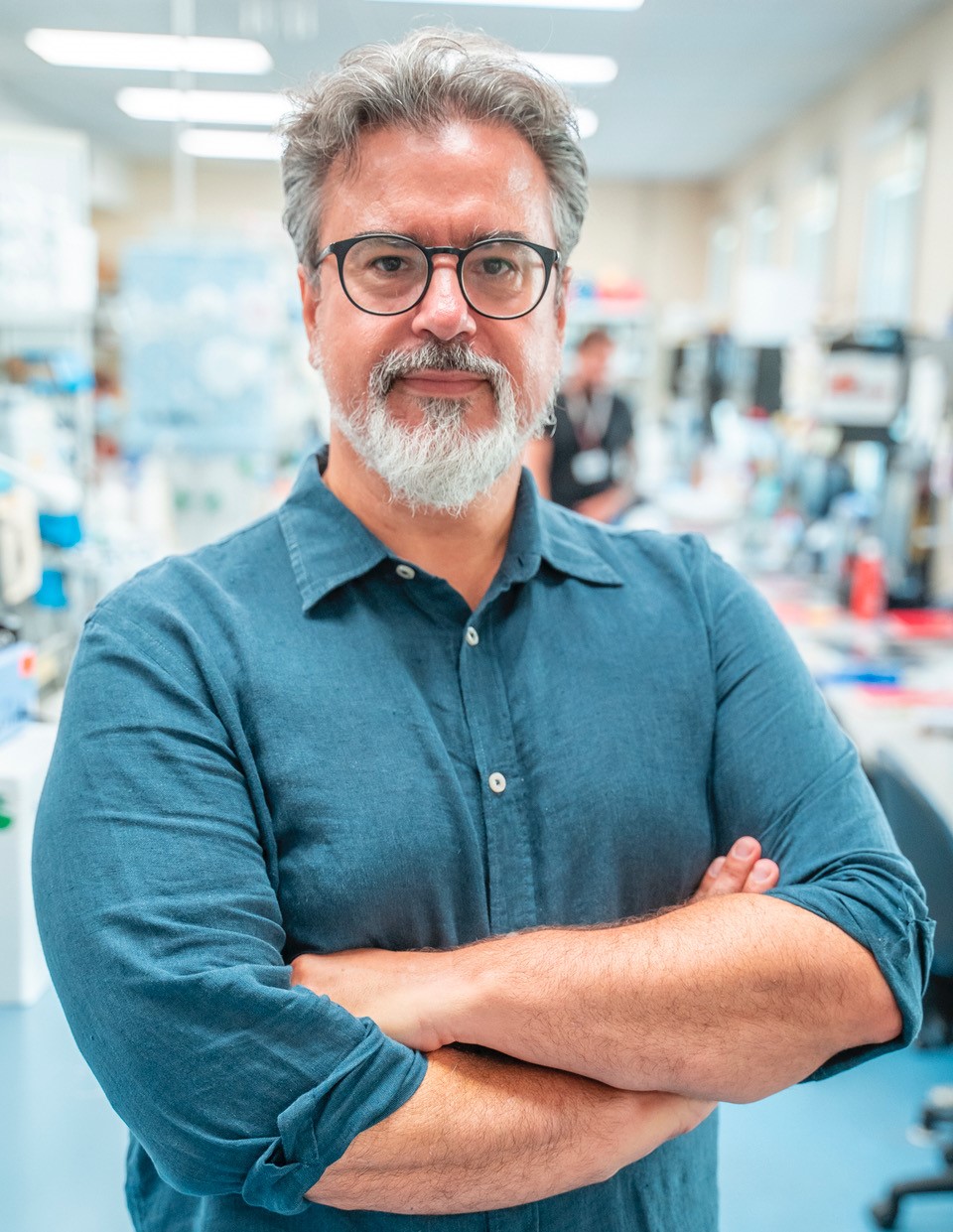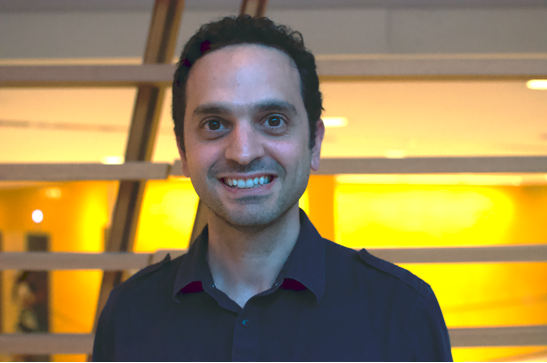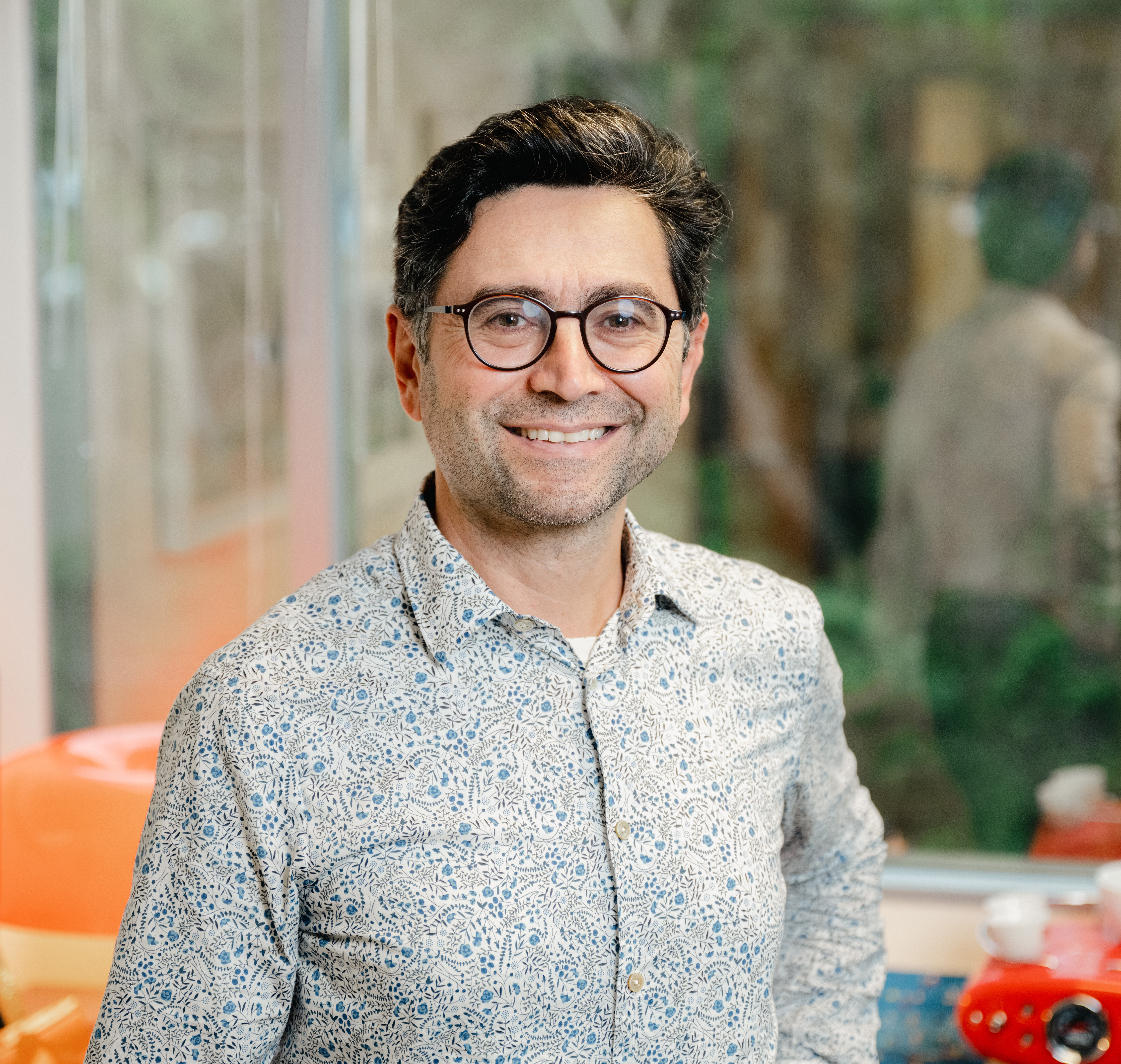Navigation auf uzh.ch
Navigation auf uzh.ch
The CRISPR4ALL project supports the research of the following PIs:

Institute for Research in Biomedicine & Institute of Oncology Research, Università della Svizzera italiana, Bellinzona, Switzerland.
Project info: A hallmark of immune evasion in cancer involves the ligation of inhibitory receptors on T cells, impeding their functions. In this project, we conduct CRISPRa screens to identify novel regulators of T cell function, potentially revealing new targets for immunotherapy

Short Bio: Konstantinos Lefkimmiatis is Full Professor of Physiology at the Department of Molecular Medicine of the University of Pavia, where he directs the Unit of Cellular and Molecular Physiology. He also holds an appointment as a Principal Investigator at the Veneto Institute of Molecular Medicine (VIMM). Before joining the University of Pavia, he held positions as tenured researcher at the Neuroscience Institute of the Italian National Research Council (CNR) (2017-2019); Intermediate Fellow at the University of Oxford (2013-2016) and Instructor in Surgery at Harvard Medical School (2010-2013) while he was a Postdoctoral Researcher at Harvard Medical School (2006-2010).
Project info: Mitochondria and nucleus co-evolved for millions of years and during that time they developed a complex language for their communication. In recent years, it became obvious that the exchange of cues between the two organelles is aided by their direct interaction through membrane contact sites. However, despite evidence pointing to the pathophysiological significance of contacts between mitochondria and nucleus, the molecular machinery(ies) responsible for their interaction remain unknown. In our CRISP4ALL project we will employ the Tspiezzo library in combination with molecular tools developed in our laboratory to unveil the molecular components necessary for the establishment of mitochondria – nuclear contacts. The identification of the structural components that drive the formation of contacts between mitochondria and the nucleus will provide important cues on how the two organelles recognise each-other, establish, and stabilize their connections and will pave the road towards understanding the functional significance of these contacts and how they affect the physiology of each organelle and consequently that of the cell.

Short bio: Lefteris received his B.S. in Biology from the Aristotle University of Thessaloniki in Greece. He then moved to the United States where he received his Ph.D. in Microbiology and Immunology from the University of Missouri under the mentorship of Dr. Stefan Sarafianos. For his thesis he investigated the mechanisms of action and resistance to HIV and HBV antivirals. Then he moved to New York to work as a postdoctoral fellow at Rockefeller University in Dr. Charlie Rice’s laboratory. There, he focused on developing innovative cell culture and animal model systems for studying HBV and other liver-related diseases. Lefteris started his independent lab at Emory University in fall 2021 to continue his work on virus-host interactions in HBV and other viruses.
Project info: the CRISPR4ALL award offers a great opportunity to make significant progress in hepatitis B virus (HBV) biology. Using the T. gonfio and T. spiezzo sgRNA libraries we will conduct initially genome-wide screens using hepatoma cells to identify host factors that impact HBV replication. Then, validation screens will be performed in primary hepatocyte cultures and systems that allow to identify host factors that impact HBV and chronic infection. The ultimate goal is to generate highly impactful data towards a cure against HBV.
Short bio: Ardem Patapoutian is a professor at Scripps Research, where his laboratory identified the molecules that sense temperature and pressure involved in touch, pain, and regulating blood pressure. Patapoutian is of Armenian descent and was born in Lebanon. He immigrated to the USA in 1986. He graduated from UCLA in 1990 with a B.S., received his Ph.D. from Caltech in 1996, and performed postdoctoral training at UCSF. He joined the faculty of Scripps Research in 2000, where he is currently the Presidential Endowed Chair in Neurobiology and an Investigator of the Howard Hughes Medical Institute. He held a joint appointment at the Genomics Institute of the Novartis Research Foundation from 2000 to 2014, serving as director of Discovery Research. He is a member of the National Academy of Sciences (2017) and a member of American Academy of Arts and Sciences (2020). He is a recipient of the 2020 Kavli Prize in Neuroscience, the 2021 BBVA Foundation Frontiers of Knowledge Award, and the 2021 Nobel Prize in Physiology or Medicine.
Project info: Understanding how cells convert external stimuli into chemical signals is a major challenge in sensory biology. We will use CRISPRa to screen for proteins that increase cellular response to mechanical force, potentially identifying novel mechanosensors.

Prof. Dr. Stephanie Pfänder, Research Unit: Emerging Viruses, Leibniz Institute of Virology (LIV), Hamburg Germany and University of Lübeck, Germany
Summary: DEFENDER aims at applying a comprehensive and integrative platform approach moving beyond virus-centric or single-gene methodologies in order to gain novel and precise insights into virus-host interactions and identify molecular targets for intervention. DEFENDER’s research pipeline will focus on preventing virus entry through (i) a host bottom-up functional genetic approach in parallel to (ii) a virus top-down glycoprotein-centered approach. By embedding the CRISPR4ALL technology within DEFENDER`s research and innovation pipeline, we accelerate the discovery of novel therapeutic targets for a wide range of (re-) emerging viruses. This collaborative effort ensures efficient resource utilization, data integration, and a more comprehensive strategy for antiviral intervention.